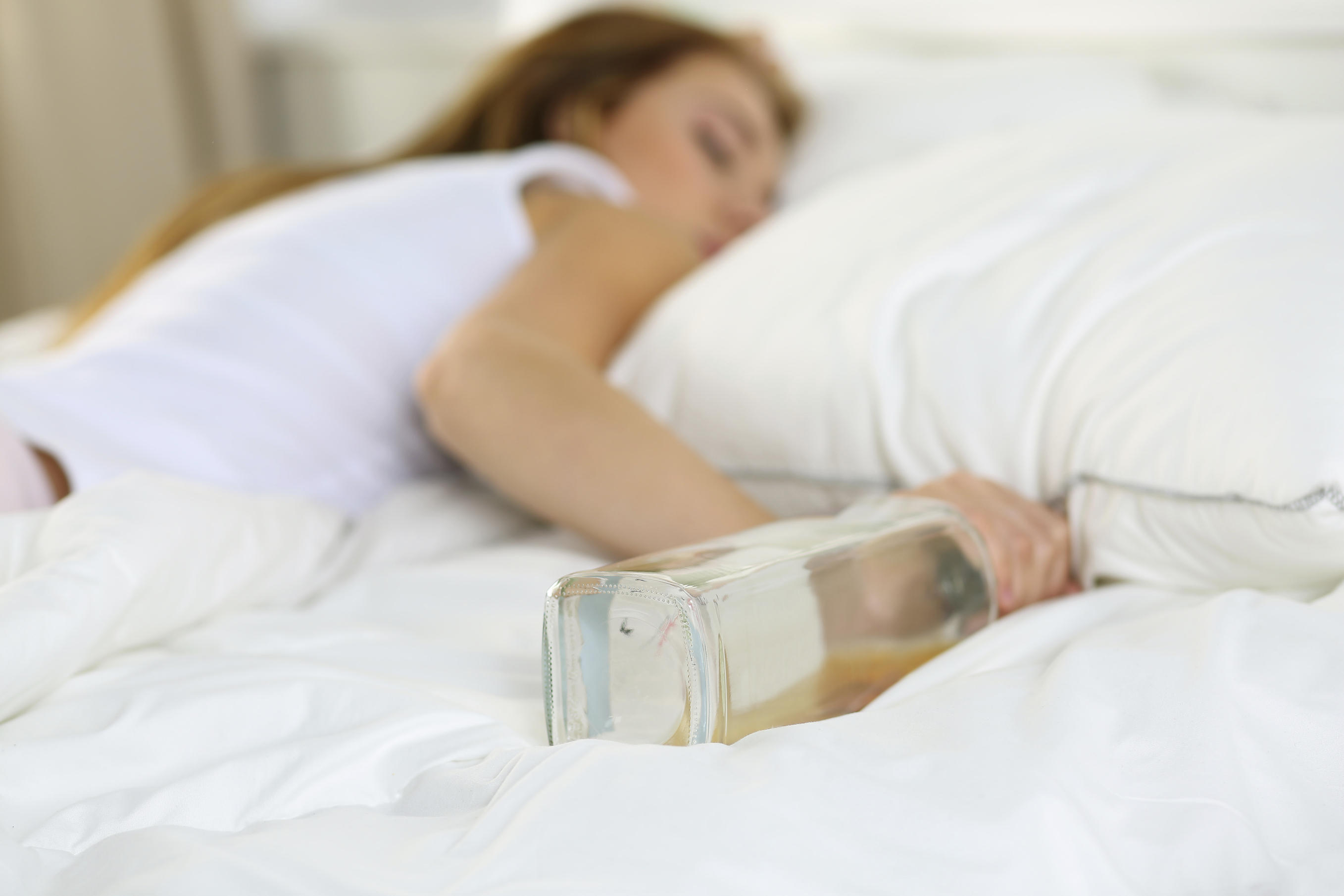Blackouts: A Lesson on Alcohol, Memory, and the Brain

(This content is being used for illustrative purposes only; any person depicted in the content is a model)
Those who struggle with alcohol dependency may be all too familiar with blackouts. Suddenly, you wake up with absolutely no recollection of what happened the night before. What exactly IS a blackout?
A blackout is a drug-related amnesia. Chances are you know someone who has had one, or you have had your share of blackouts. In a blackout, you may become incoherent, and you might not remember saying something, so you repeat it over and over again.
When you have a blackout, most people around you do not even know you are having one. You could be behaving completely normally however your brain is not saving those memories. In a drunken amnesia, it is almost like the lights are on, but no one is home. This kind of memory failure is called a complete or en-bloc blackout. Then there is what is known as “brownouts” where you only remember fragments of memory.
A blackout is not the same as passing out. When you pass out, you lose consciousness or fall asleep. That is the opposite of a blackout. In a blackout, a person can do the same things they could do if they were not black out. The difference is the next day; they will not remember much, if anything.
What Causes a Blackout?
The reason for a blackout is still quite uncertain. There is not a simple equation to predict when a person will experience a blackout. The effects of alcohol depend on a variety of complex physiological factors.
If we want to understand blackouts, we need to understand memories.
The Three Steps to Memory Formation
- The event is experienced, and the brain interprets and encodes that event.
- The stimuli are stored for safe keeping.
- The memory is retrieved when recalling the experience.
With short-term memory, these three steps occur in a matter of seconds. Short-term memories are either discarded or stored as long-term memories.
However, the brain struggles to store things as long term memories when alcohol is involved. Alcohol acts on the receptors in the brain and blocks the neural signals needed for memory formation. Simply put. Booze screws everything up by mixing up the encoding process. Alcohol messes up the encoding process by incorrectly writing important contextual information. Furthermore, in a brownout, the context is corrupted during the encoding stage. In some circumstances, when the right information is provided, a previously misfiled memory can be reshuffled into its correct place.
There are many factors that play into alcoholic memory loss. That Is why it can be impossible to recall memories the day after. Scientists are still trying to figure out why this happens, but one thing they do know is that the amount of alcohol you drink and how much you drink directly affects the likeliness of experiencing a blackout.
Who Is at Risk?
Anyone who drinks heavily is at risk of a blackout. Binge drinking is defined as “rapid alcohol consumption that raises blood alcohol concentration (BAC) to 0.08 percent or higher.” Alcohol has obvious immediate effects on your brain like loss of concentration, distorted vision, reduced inhibitions, memory problems, impaired reflexes, and slurred speech. At a BAC level of 0.16, blackouts become a higher risk. However, it is not all about BAC levels; genetics, mental health, and physical health are all influential factors. The more blackouts a person experiences, the more likely they are to have one again.
Blackouts are not fun. Even if they seem to like it at the moment, you are putting yourself in danger by getting to a point where you do not even remember what happened. It just is not worth it. Furthermore, if you are struggling with alcohol dependency, call now. We can provide you with a foundation for long-term recovery. Do not wait. If you or someone you love is struggling, please call toll-free 1-800-777-9588.
